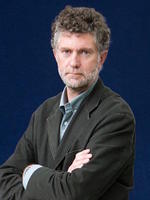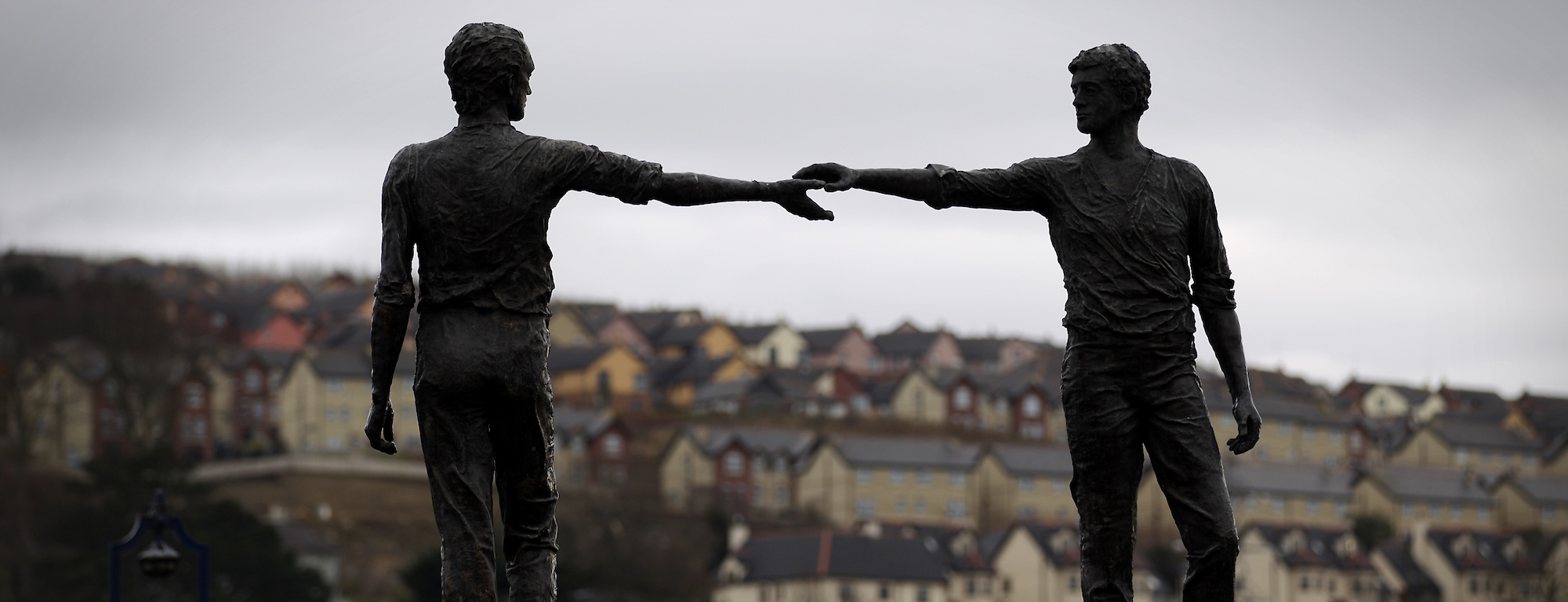
Richard English is Professor of Politics at Queen’s University Belfast, where he is also Distinguished Professorial Fellow in the Senator George J. Mitchell Institute for Global Peace, Security and Justice, and the University’s Pro-Vice-Chancellor for Internationalization and Engagement. Between 2011 and 2016 he was Wardlaw Professor of Politics in the School of International Relations, and Director of the Handa Centre for the Study of Terrorism and Political Violence (CSTPV), at the University of St Andrews. He is the author of eight books, including the award-winning studies Armed Struggle: The History of the IRA (2003) and Irish Freedom: The History of Nationalism in Ireland (2006). His most recent book, Does Terrorism Work? A History, was published in 2016 by Oxford University Press. He is also the co-editor/editor of a further six books and has published more than fifty journal articles and book chapters. He is a frequent media commentator on terrorism and political violence, and on Irish politics and history, including work for the BBC, CNN, ITN, SKY NEWS, NPR, RTE, the Irish Times, the Times Literary Supplement, Newsweek, the Guardian, and the Financial Times. He is a Fellow of the British Academy (FBA), a Member of the Royal Irish Academy (MRIA), a Fellow of the Royal Society of Edinburgh (FRSE), a Fellow of the Royal Historical Society (FRHistS), an Honorary Fellow of Keble College Oxford, and an Honorary Professor at the University of St Andrews. In 2018 he was awarded a CBE for services to the understanding of modern-day terrorism and political history. He has delivered invited Lectures about his research in more than twenty countries.

Ryan Feeney is the Head of Public Engagement at Queen’s University Belfast where he is responsible for leading the University’s public affairs, business engagement and community engagement work programs. He was Visiting Professor in Governance and Public Policy at Ulster University from 2014 to 2016 and spent ten years as Director of Community and Public Affairs at Gaelic Athletic Association prior to his appointment at Queen’s University. He was appointed to the Northern Ireland Policing Board as an independent member by the Minister of Justice in May 2011 and reappointed for a second four-year term in June 2015. He is a graduate of Education with Business Studies and History from St. Mary’s University College at Queen’s University and holds an MA in Irish History and Politics from Ulster University and an LL.M in Law, Governance and Public Policy from Queen’s University Belfast.

Jonathan Powell is the Founder and CEO of Inter Mediate, an NGO dedicated to conflict resolution around the world and former Chief of Staff to Tony Blair from 1995 to 2007. Powell was also appointed as the British Prime Minister’s Special Envoy to the Libyan transition in April 2014. Jonathan Powell was Tony Blair’s Chief of Staff in opposition from 1995 to 1997 and then his Chief of Staff in Downing Street from 1997 to 2007. Powell was also the British Government’s chief negotiator on Northern Ireland from 1997 to 2007 and played a key part in leading the peace negotiations to a successful conclusion over that decade, from the triumph of the Good Friday Agreement in 1998 though the nine-year battle to get its implementation agreed and a lasting settlement in place. Before working for Blair, Powell was a British diplomat from 1979 to 1994, specializing in negotiations. He was a member of the British team conducting the negotiations on the return of Hong Kong to the Chinese in the early 1980s under Percy Craddock, the Conference on Disarmament in Europe (CDE) arms control talks and the Conference on Security and Cooperation in Europe (CSCE) human rights talks with the Soviet Union in the mid-1980s, the Two plus Four talks on German Unification and the G7 in the late 1980s. As the political officer at the British Embassy in Washington he attached himself to the Presidential campaign of Arkansas Governor Bill Clinton in 1991 and stayed with it till Clinton’s victory in 1992. He subsequently introduced Tony Blair and Gordon Brown to Bill Clinton and his team in 1993 and played a key role in the building of the close relationship between the US President and the new British Prime Minister.

Ian Shapiro is Sterling Professor of Political Science at Yale University, where he also serves as Henry R. Luce Director of the MacMillan Center for International and Area Studies. He has written widely and influentially on democracy, justice, and the methods of social inquiry. A native of South Africa, he received his J.D. from the Yale Law School and his Ph.D from the Yale Political Science Department where he has taught since 1984 and served as chair from 1999 to 2004. Shapiro is a fellow of the American Academy of Arts and Sciences and the American Philosophical Society, and a member of the Council on Foreign Relations. He is a past fellow of the Carnegie Corporation, the Guggenheim Foundation, and the Center for Advanced Study in the Behavioral Sciences. He has held visiting appointments at the University of Cape Town, Keio University in Tokyo, and Nuffield College, Oxford. His most recent books are The Real World of Democratic Theory (Princeton University Press, 2012) Politics Against Domination (Harvard University Press, 2016), and, with Frances Rosenbluth, Responsible Parties: Saving Democracy from Itself (Yale University Press, 2018). His current research concerns the relations between democracy and the distribution of income and wealth.

Bonnie Weir is a lecturer in Political Science at Yale University. Her work focuses on political violence and post-conflict politics with an empirical concentration on Northern Ireland. She is currently working on projects on the political transformation of paramilitary groups and sectarianism. Her research is grounded in extensive qualitative fieldwork paired with original spatial and survey experimental data; her work highlights the very personal and local nature of insurgency and sectarian division.
